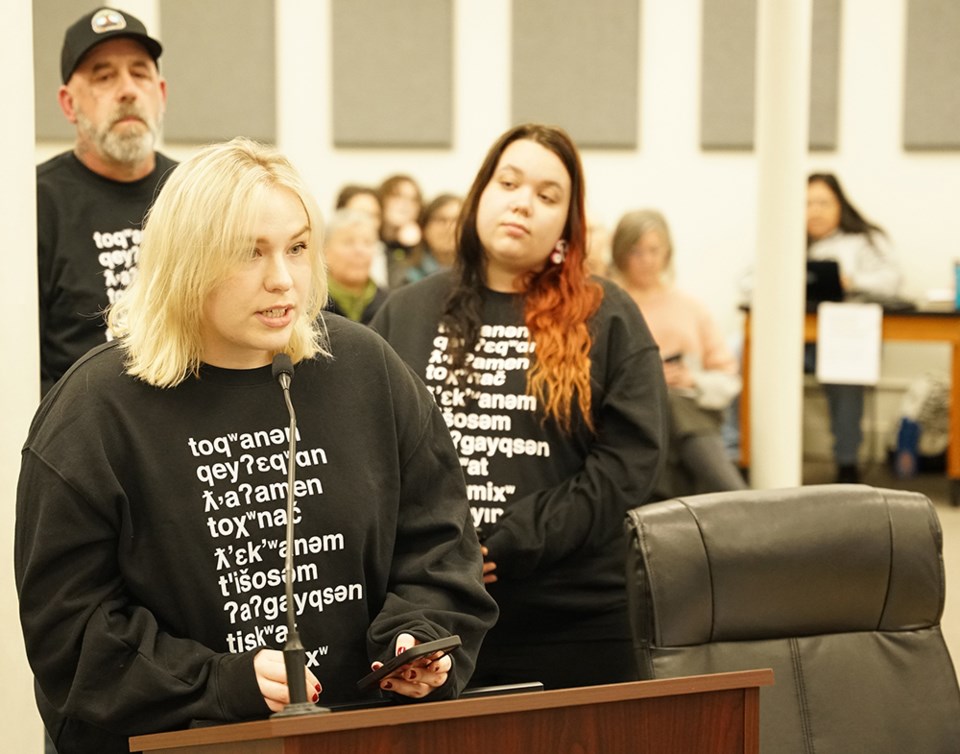City of Powell River Council’s draft strategic priorities were acknowledged by a small delegation that appeared before councillors to provide feedback on various initiatives.
At the January 30 committee of the whole meeting, Rachel Driedger, Kailee Davis and Scarlet Tyler made presentations regarding environmental resiliency and a potential name change.
Davis, who said she is a working youth living in qathet, asked for council to expand environmental resiliency to align with recommended actions by 50 by 2030, supported by qathet Climate Alliance.
“These points include all levels of government mobilizing on social justice and environmental protection,” said Davis. “I’m very excited to see progress on safe, accessible active transportation corridors, in cooperation with regional partners, to include regional transportation as being a priority. As a working resident who does not own a car, I’d like to see this point expanded to include increasing mobility in the city and region.
“I ask that the city prioritizes working with the ministry of transportation, BC Transit and service users to start a plan that prioritizes city and regional connectivity and safety. We are looking for more sidewalks, more pedestrian and cycling paths, more crosswalks and better public transit. This would help achieve overarching goals of healthy community, environmental resiliency and economic vibrancy.”
Scarlet Tyler said he was appearing to express his sincere acknowledgement and support for the crucial initiatives proposed to advance reconciliation and enhance the overall well-being of the community.
“I commend city council for its commitment to fostering positive relationships with Tla’amin Nation and for addressing vital issues that impact the lives of our residents,” said Tyler. “City council’s [strategic priorities] draft, which includes the decision to take real steps towards a name change, is a powerful expression of commitment to decolonization. Names often carry historical, cultural and colonial connotations that may perpetuate inequalities and marginalization.
“By actively considering a name change, city council is acknowledging the need to dismantle symbols of colonization and create a more inclusive and respectful environment for all residents.”
Driedger said as a settler and permanent resident living in the qathet region, she feels a responsibility to the community to continue to learn better ways to engage and interact with the community, learn more evidence-based solutions and collaborate for a sustainable community.
She said she commends council’s draft strategic plan for including taking real steps toward reconciliation and a name change.
“Avoiding issues is a disservice to the vibrancy, economic development and overall health of our community,” said Driedger. “We are looking to you as city council for thoughtful leadership, community engagement, collaboration and forward-thinking solutions.
“What if our city’s leadership put energy into hearing from voices they hear from the least? What would it look like to embed equity into every step of the decision-making process? What if, through the process of collaboration, the community actually provided more support to one another?”
Driedger said there is immense capacity in the community and mutual feelings of care and love for where residents live.
“What if, in the process of changing our name, the community is forever positively impacted by increasing community cohesion, belonging and attracting more innovation and thoughtfulness?” asked Driedger.
Join the Peak's email list for the top headlines right in your inbox Monday to Friday.



